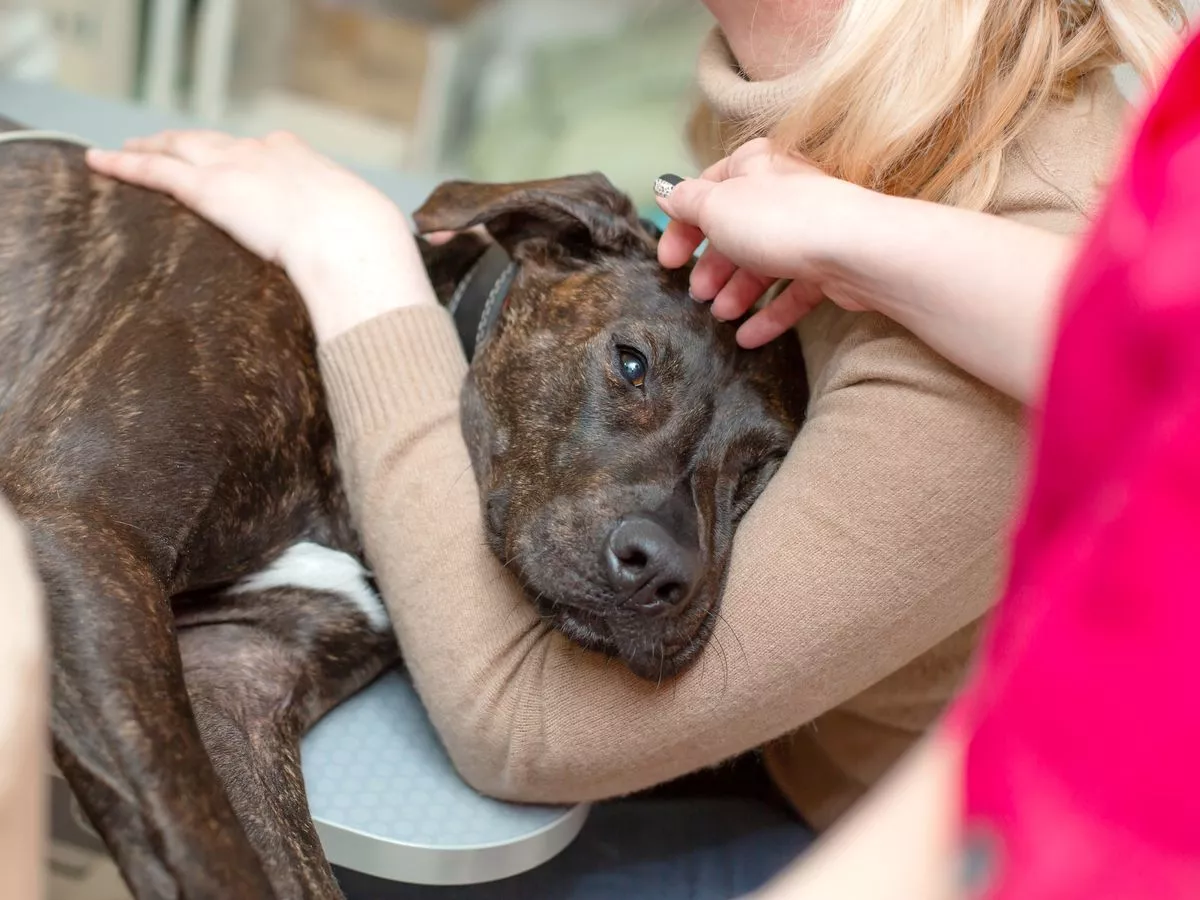Copyright dailyrecord

Dog owners are being urged to keep a close eye on their canine companions over the coming weeks as a contagious disease is currently on the rise. While many people may love the colder months for their c osy drinks , festive celebrations, and chilly weather that gives us a prime excuse to stay indoors and watch our favourite shows, a major downside is the rise in sickness and infectious diseases. And it isn't only humans who are likely to suffer at this time of year, as our beloved pets are also more prone to catching an illness as the seasons change. As such, a senior vet is urging dog owners to keep watch out for any signs in their dogs behaviour that they are under the weather as a contagious infection is currently on the rise, reports the Mirror. Across the country, cases of kennel cough have begun to surge, making it crucial that pet owners are aware of the symptoms so they can best take care of their furry friends this winter season. Also known as the 'honking cough', this doggy illness usually spreads rapidly in kennels, doggy daycares , and in parks due to direct contact, airborne droplets or contaminated surfaces. While a healthy dog may have a better chance of fighting off the disease, older dogs, puppies , and ones with weakened immune systems will be more vulnerable to infection and can suffer from severe complications and be contagious for longer. While minor cases of kennel cough can usually be cleared up with plenty of rest and hydration, dogs with more serious cases may need to be prescribed medication. For pet owners unsure of what to look out for, Daniella Dos Santos, Senior Vet at IVC Evidensia , and veterinarian Iryna Smyrnova in collaboration with Bubblegum Search , have shared the warning signs, as well as when it is best to see a vet and what treatments are available. Kennel cough is primarily brought on by various viruses and bacteria, such as Bordetella bronchiseptica and the canine parainfluenza virus. These irritants can impact a dog's airways and can be spread through the air, direct contact, and shared items such as toys, bedding and bowls. Due to its quick transmission, cases in kennels, daycares and shelters can quickly spike. While it may sound like your dog is trying to clear its throat, a tell-tale sign of kennel cough is a cough that is "harsh, hacking, and honking". This could be followed by some gagging or foaming saliva. Additionally, this persistent cough can worsen at night, during play, or if a collar rubs against the neck of your beloved pooch. The vets also noted other symptoms, such as retching and gagging, sneezing and a runny nose, watery eyes or eye discharge, mild lethargy, and fever or loss of appetite - however these last two signs are only in more severe cases. While most dogs with kennel cough will stay alert and keep their usual eating habits, if you notice the cough is becoming wet, their breathing is becoming difficult, or they are refusing food, you should seek veterinary help immediately. For healthy dogs, they are typically contagious for two to three weeks after the symptoms have begun. Therefore, if your dog catches the disease, it is recommended to isolate your pet from other dogs while they are showing symptoms, as well as a few weeks afterwards. However, older dogs, puppies, and those with a weakened immune system - whether this is due to stress, poor nutrition or regular exposure to cigarette smoke and dust particles - can remain infectious for longer. It should also be noted that even when the coughing stopped, it is recommended that affected dogs be kept separated from others for at least seven more days to prevent transmission. While kennel cough typically lasts for between one and three weeks, there are certain symptoms that may last for up to six weeks. If your dog's condition begins to worsen, or they start showing more serious signs such as loss of appetite , nasal discharge, or are appearing extra lethargic, it is recommended that dog owners get in touch with a vet. Additionally, owners with puppies, older dogs, or those with underlying health issues should closely monitor their pets as kennel cough can potentially develop into pneumonia. Daniella advises: "Vaccination is the best method of protection and prevention, and owners can ask vets about adding this to their dog's vaccination schedule if they are concerned." Whether given via the nose, mouth or an injection, a vaccine should help shield dogs from kennel cough. However, it is advised that owners also take extra measures, such as keeping kennels aired out and clean, to ensure their furry pal stays safe. While there isn't a specific test for kennel cough, vets can diagnose based on the symptoms they see. Mild cases usually require rest, fluids and at times a humidifier. However, more serious cases may need cough suppressants or antibiotics. It is also recommended to keep your dog away from smoke and chilly air.



